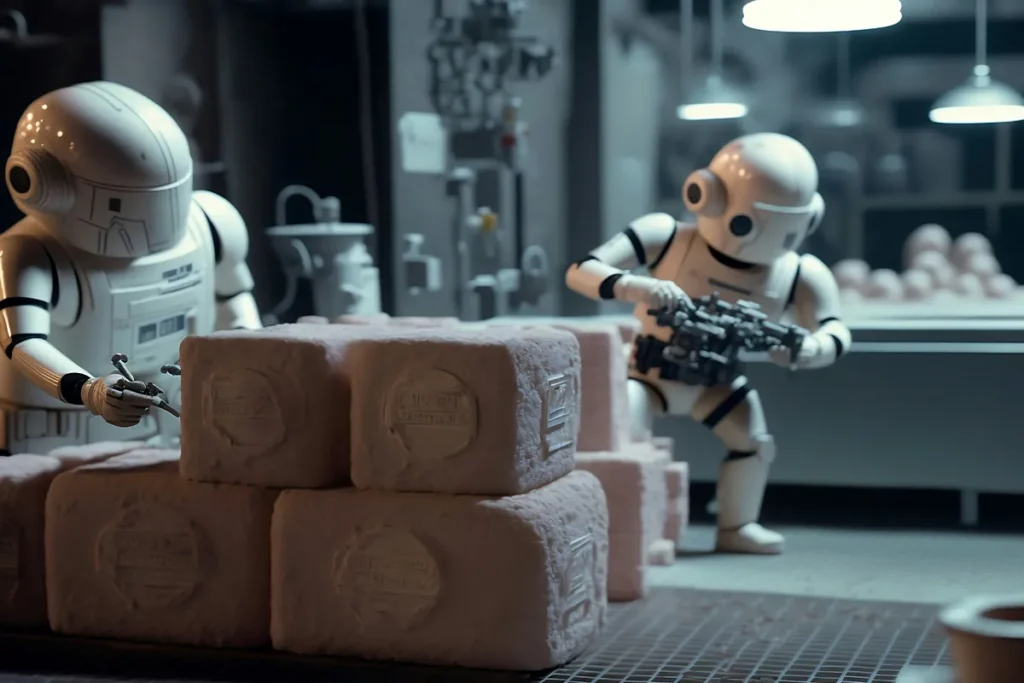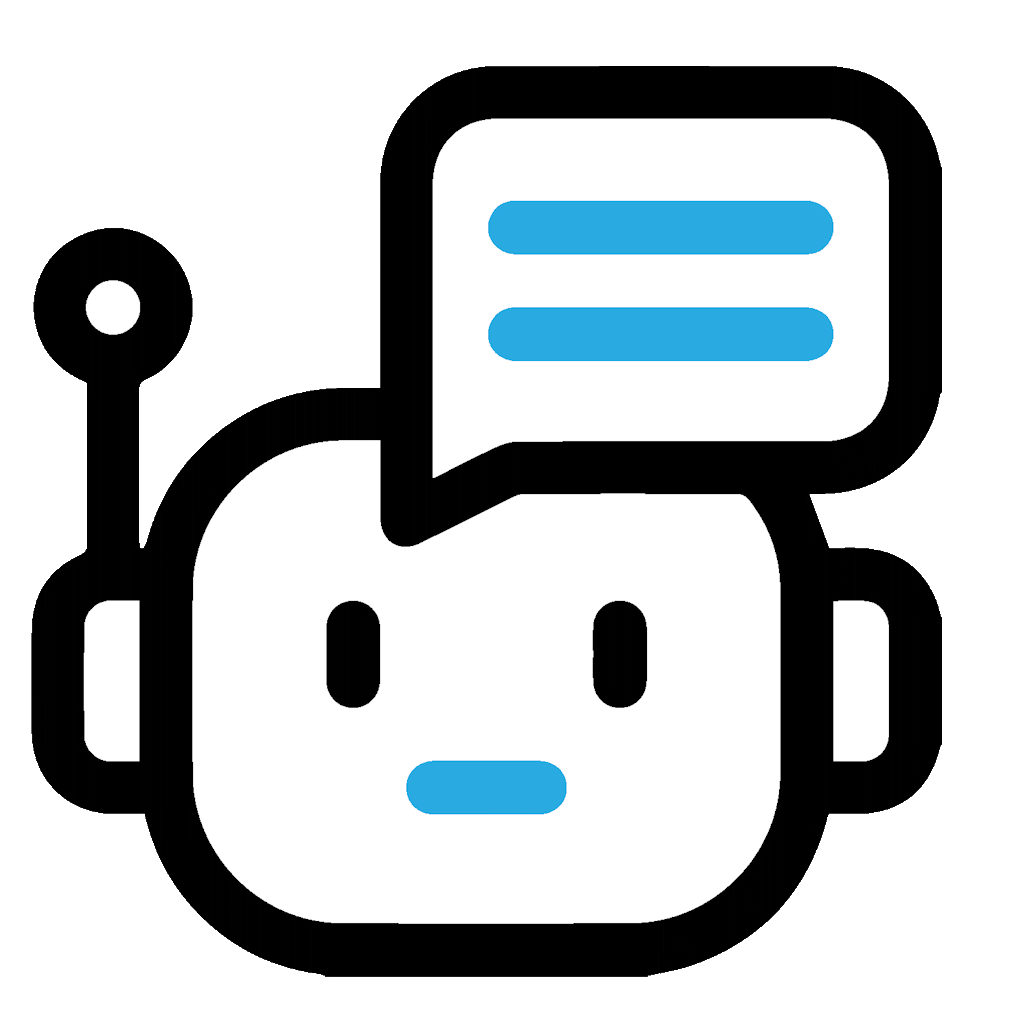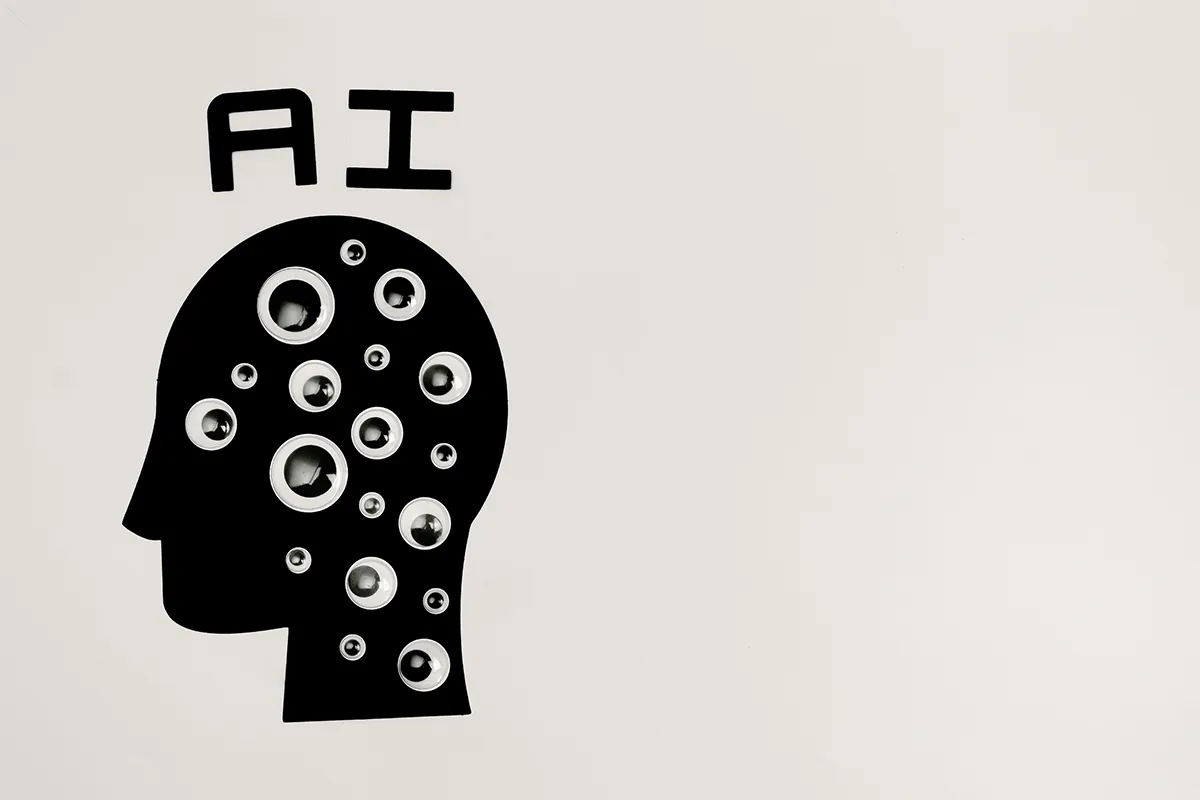Artificial Intelligence (AI) is when machines act and think like humans. These machines do things that humans usually do, like solving problems, understanding speech, and making decisions. AI has become a big part of our day-to-day life.
People started creating AI in the 1950s, with early experts like Alan Turing and John McCarthy. Through the years, AI has grown from simple ideas to complicated networks. This growth has changed many areas of life.
Now, AI is very important in our world. It affects fields like health care, money, and how we move from place to place. AI looks at a lot of data and helps make things work better. It finds new ways to fix things we do every day.
AI in the Home
Artificial intelligence makes our houses smart and all connected. Think about your smart speaker giving you the weather and news and making your coffee. Tools like Alexa and Google Assistant help you through your day. Smart things to keep your house warm or cold save you comfort and money. AI security cameras and alarms keep your house safe. They send you messages and can work by themselves.
Doing housework is so easy now. Robot vacuums clean your floors on their own. They keep your home clean with little help from you. Smart kitchens with AI make cooking easy. They suggest recipes and cook perfectly.
AI changes how we enjoy things at home. It picks shows and music you will like by learning what you watch. Netflix and Spotify know what you will enjoy. AI makes video games better, too. It gives you smart enemies and stories that change, so you never get bored.
AI in Healthcare
Healthcare is changing because of AI. AI finds diseases before you feel sick. It looks at a lot of information to see things doctors might miss. This makes diagnoses better and treatments start sooner. Treatments are made just for you, which makes them work better.
AI makes research faster, especially for new drugs and genes. Computers look at a lot of data to find new medicines. They understand genes very well. This helps us get new treatments quickly.
Advanced technology makes taking care of patients better. People can talk to doctors from far away with telemedicine. Health helpers on the computer watch over patients. They give advice to help with long-term diseases. This helps people live healthier.
AI in the Workplaces
AI changes workplaces by making repetitive tasks automatic and improving productivity. Now, workers do not do much administrative work, like putting in data or planning schedules. This means workers can do more important work that needs thinking and new ideas. In making things and producing goods, machines and robots with AI do jobs with great care and speed up work.
The equipment based on advanced AI algorithms helps a lot with making decisions by looking at data and finding patterns. Companies can quickly make smart choices with AI’s help. AI looks at lots of information and sees things that people might not. AI plans for business are normal now.
They let companies guess what will happen in the market and make their work better. This makes companies more competitive, but it also means we have to think about right and wrong in how we use data and keep it private.
The technology has changed human resources. Now, finding people for jobs is faster and works better, with AI looking at resumes, picking the best people, and even setting up meetings.
AI also helps manage talent by guessing how well workers will do and finding ways to help them improve. AI tools watch how workers do their jobs and give feedback at once. But this makes people worry about their privacy and how much machines are part of work relationships.

AI in Education
Education is different now because of AI. It gives learning just for each student. Programs that adapt make the learning fit what each student needs. This makes education work better and is more fun.
AI tutors and assistants help students understand well. Teaching is changing and now we must make sure everyone can access digital tools.
Schools use AI to make administration easier. AI grades work fast and tell students right away how they did. AI plans schedules and looks after resources without effort. We need to find the right mix of AI help and human care.
AI makes students more interested in learning. The AI tools check your generated text and humanize it to give it more organized reading textures.
It changes the teaching to fit each student. AI chatbots talk to students and keep them involved. Teachers use AI to see who needs more help and to keep students interested.
AI in Transportation
Cars that drive themselves are real now. They make driving safer and less busy on the roads. Buses and trains that do not need drivers are always on time. They are good for the environment too.
Cities use AI to solve traffic problems. AI looks at a lot of data to tell drivers how to avoid bad traffic. This technology helps in emergencies by giving updates right away. Smart traffic lights talk to cars to better manage traffic, making it faster and getting better traffic.
AI makes managing supply chains work better. Programs plan paths, guess demand, and control stocks by themselves, cutting waste and costs a lot. More drones are being used for delivery. They are good for places hard to get to, offering fast and sure delivery while costing less for work.
Ethical and Social Considerations of AI
As AI mixes more with transport, people worry about privacy. Collecting data and watching by smart systems means we must watch out. People should know what data is taken and what is used. Letting people agree and being clear are key to keeping trust and respecting privacy rights.
Machines might take over many simple jobs, in things like logistics and delivery. This change means workers need new skills and training for new jobs Artificial Intelligence makes. Towns and businesses need to work together to give learning chances and help those hit by machines taking jobs.
It is a big worry that AI could be biased. If data is biased, it can treat people unfairly and make inequality worse. Making programs fair needs much checking and making better. It is important to be fair in AI use, not just in tech but also to make society fairer.
Future of AI
Artificial intelligence is about to make big advances. New technologies like quantum computing will change how AI works. Quantum computing will make AI process things faster and solve hard problems. A smart AI could test new drugs quickly for sicknesses.
We will see better machine learning, too. These smarter methods will make AIs that are good at predicting, understanding language, and making decisions instantly. As AI gets better, it will make big changes in many jobs, such as in banks and hospitals.
AI will change how we work. AI will do simple, repeatable jobs, and people will do more creative things. We will need to learn new skills for jobs with AI. We need to make new rules for AI. We have to be careful with privacy and fairness. Countries and companies have to work together to make sure AI is safe and fair.
Conclusion
AI already changes how we live, work and get better from illness. AI helps us by doing easy tasks and helping doctors treat patients better. AI is very useful in our lives every day. It learns and changes to make daily life better and tasks easier.
It is important to weigh the good against the bad. AI makes things work better and gives us new chances, but people worry about privacy, jobs, and right and wrong. We must fix problems with keeping data safe and unfair algorithms to make AI fit with what people think is right.
Getting the balance right will decide if AI helps us or causes problems. People who make laws, people who make technology, and everyone else need to work together.
They need to make rules that help AI do good things and stop the bad things. As AI grows, keeping this balance will be key to a future where technology helps people in a right and good way.

